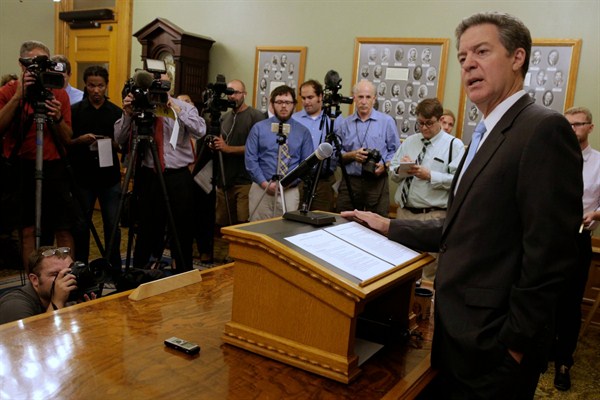Religious freedom occupies a complicated place in the halls of U.S. diplomacy. Congress imposed the Office of International Religious Freedom on the State Department in 1998 due to concerns that the Clinton administration was failing to adequately address the plight of religious communities around the world, specifically Christian communities. Because of constitutional restrictions, the U.S. ambassador-at-large for international religious freedom must walk a fine line between being a forceful advocate for religious groups, while being careful not to support one particular religion over any others.
In late July, President Donald Trump selected Kansas Gov. Sam Brownback, a staunch social conservative, to be the new ambassador for international religious freedom. In accepting the nomination, Brownback tweeted: “Religious freedom is the first freedom. The choice of what you do with your own soul. I am honored to serve such an important cause.”
The selection of Brownback is a troubling one. He has been front and center in America’s culture wars, his tenure as Kansas governor defined by one controversy after another. Brownback signed a religious freedom bill that critics maintained would permit discrimination against LGBT students and other minority groups at public universities. He slashed education funding so severely that the Kansas Supreme Court ruled that public education spending was “unconstitutionally low.” He made Kansas the first state to withdraw from a federal refugee program, citing unfounded “security risks.” Unsurprisingly, Brownback ranks as one of the least popular governors in the country, with a disapproval rating hovering around 66 percent.

